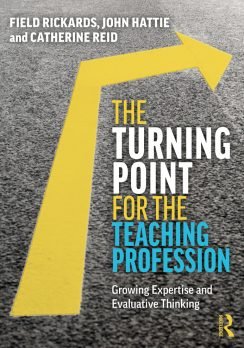I asked the AI module built in to Squarespace to write a paragraph on why music is relevant to teachers of Computing. Here’s what it said…
Read MoreQuick look: Parliament Buildings: The architecture of politics in Europe
I suspect that the use of space in parliament buildings will hold some lessons for schools as well.
Read MoreReview: The Liars of Nature and the nature of liars: Cheating and deception in the living world
The key question at the heart of this book is perhaps this – if honesty is the best policy, why is dishonesty so rife in nature?
Read MoreReview: Sensational: A new story of our senses, by Ashley Ward
Research apparently shows we may actually have up to 50 senses, and even that figure isn’t universally agreed upon.
Read MoreReview: The A-Z of Great Classrooms, by Roy Blatchford
I’m personally yet to be convinced by the benefits of dictation, and the idea of teaching English via a cross-curricular approach has been tried with less than satisfactory results. Nevertheless, this is a great source of ideas.
Read MoreReview: Leadership: Lessons from a life in diplomacy
My reason for reviewing this book was to see if it might contain any useful lessons for SLTs.
Read MoreReview: Strange Code: Esoteric Languages That Make Programming Fun Again
Given how much there already is to cover in the computing curriculum, why spend time exploring programming languages that are, so to speak, way off the beaten track?
Read MoreReview: Science Fiction: Voyage to the Edge of Imagination
My review of this book has recently been published in Teach Secondary magazine. I thought some readers might be interested in spotting the differences between the published version, and the copy I submitted.
Read MoreReview: The Science of Learning
Evidence-based education tends to be regarded in much the same way as Oscar Wilde viewed advice: useful for other people.
Read MoreReview: The power of professional learning networks: full review
The idea of professional learning networks, or PLNs, has been around a long time. So what is there to say about them with regard to teachers’ professional development and wellbeing?
Read MoreReview: 20 Things to do with a computer (full review)
Back in 1971, when computers in schools were barely conceivable, Seymour Papert and Cynthia Solomon produced a revolutionary paper. Reproduced in this book, their Twenty Things to Do with a Computer introduced teachers to the idea that programming could be used to engage children, release their creativity and still learn stuff.
Read MoreReview: The turning point for the teaching profession -- full review
Given that the government has laid down what must be taught, periodically pontificates on the ‘best’ teaching methods, goes so far as to indicate a preference for particular resources and has appointed an external organisation to oversee quality control, can teaching be truly thought of as a profession?
Read MoreReview: My secret #edtech diary (full review)
It is a sad confirmation that the trope that education lacks any sort of collective memory is in fact well observed.
Read MoreReview: Teaching Machines: The history of personlized learning
Here is a very strange paradox. On the one hand, everyone agrees that a key ingredient for success in life is having great teachers. On the other, there’s a relentless narrative that education is somehow broken and that fixing it entails replacing teachers or transforming some or all of what they do.
Read MoreReview: The Complete Learner's Toolkit (Full review)
I was underwhelmed by a book with lofty ambitions that delivers little more than a compendium of interesting lesson ideas.
Read MoreReview: YEAR ONE: Lighting the path on your first year in teaching
I reviewed this book for Teach Secondary magazine. I’ve included both the review I sent in, and the lightly edited version that was published in the magazine.
Read MoreReview: The Fundraising Handbook by Lindsey Marsh
One of the chief banes of my life as a head of computing in a comprehensive school was acquiring enough money to develop the subject and to improve the experience of using education technology for everyone across the school.
Read MoreTerry Freedman and bookcase, by Terry Freedman
Fake news?
I’ve compiled a number of reviews of non-fiction books that either deal with helping people detect untruths (such as in so-called scientific research) or presenting something as true when, in fact, it isn’t.
Read MoreReview: The Power of Learning Networks
I suspect that this book won’t be on the education secretary’s recommended reading list for schools.
Read MoreQuick look: Strange Code
Strange Code looks at esoteric languages and also atypical languages, which are those that are not mainstream.
Read More




